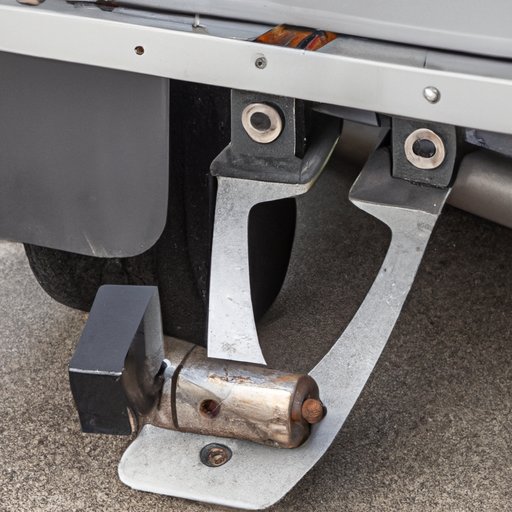Introduction
Have you ever tried to tow a trailer or a caravan and experienced fishtailing or loss of control? This could be due to improper tongue weight. Tongue weight is the force exerted on the hitch ball by the trailer coupler. It’s a crucial factor in safe towing and requires careful consideration. This article provides a comprehensive guide to understanding tongue weight and how to ensure safe and stable towing.
Understanding Tongue Weight and Its Importance in Safe Towing
Tongue weight is the amount of weight that is exerted on the hitch ball by the trailer coupler. It’s a critical factor in safe towing as it affects the control and stability of the tow vehicle. A proper distribution of weight on a trailer helps improve the handling and towing ability of the vehicle. Improper tongue weight can cause the trailer to sway or fishtail, which can result in loss of control and accidents.
Tongue Weight 101: A Beginner’s Guide to Safe Towing
There are several factors that determine the tongue weight of a trailer, such as the weight of the cargo and the position of the trailer axles. The recommended tongue weight for a trailer is usually around 10-15% of the total trailer weight. To determine the appropriate tongue weight, you can use a tongue weight scale or follow a simple formula. However, it’s important to avoid certain common mistakes such as overloading the front of the trailer, which can cause excessive tongue weight.
All About Tow Vehicle Tongue Weight: How to Calculate and Adjust It
Calculating tongue weight involves weighing the trailer and the vehicle separately and using a formula to determine the recommended tongue weight. Adjusting tongue weight can be done by redistributing the weight of the cargo or adjusting the trailer axles. Proper tools such as a weight distribution hitch can significantly improve the stability and handling of the tow vehicle.
The Importance of Tongue Weight in Towing: Tips for Proper Load Distribution
The proper distribution of weight on a trailer can significantly affect tongue weight and overall towing safety. Proper load distribution involves placing heavy items towards the front of the trailer, securing the load with proper straps, and avoiding overloading the trailer in the front or rear. It’s important to avoid common mistakes like underloading the trailer or placing the heavy cargo behind the trailer axles, which can affect tongue weight and cause instability while towing.
Tongue Weight: The Key to Safe and Stable Towing for Any Load
Proper tongue weight ensures stability and control while towing, and helps prevent sway or other towing hazards. Properly distributing weight on a trailer can also improve fuel efficiency and reduce wear and tear on the vehicle. Maintaining proper tongue weight throughout your trip is crucial to a safe and hassle-free towing experience. Avoiding common errors, regular maintenance of the trailer and its components, and using proper tools and equipment can ensure a smooth, worry-free towing experience.
Tongue Weight Demystified: How to Ensure a Smooth and Safe Towing Experience
Understanding the importance of tongue weight and following proper load distribution guidelines can lead to a safer, more enjoyable towing experience. If you’re new to towing, consult the manual and guidelines provided by the manufacturer. Regular maintenance, use of proper tools and equipment, and proper load distribution can ensure a safe and comfortable journey.
Conclusion
Proper consideration of tongue weight is crucial in safe towing. It’s important to understand the relationship between tongue weight and safe towing, avoid common mistakes, and follow appropriate guidelines. Regular maintenance, proper tools, and equipment, and proper load distribution can ensure a safe and comfortable towing experience.
